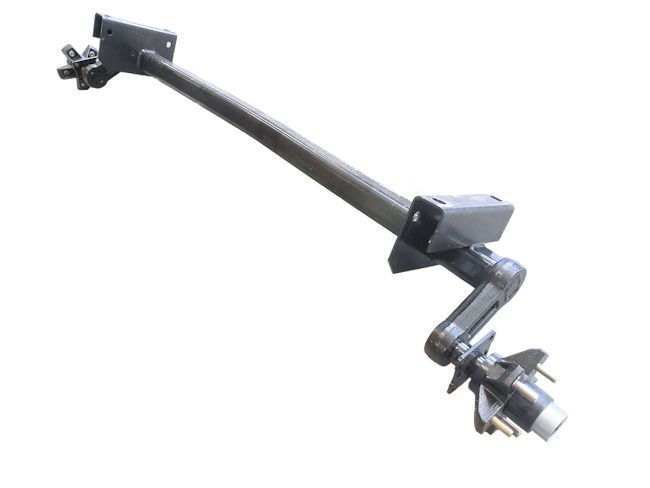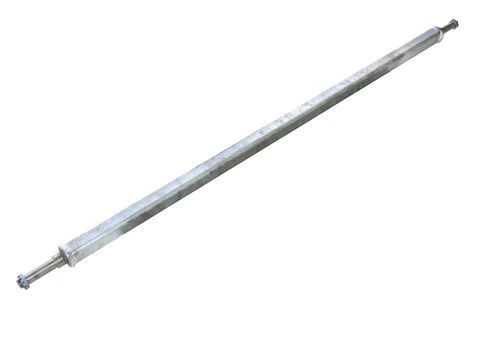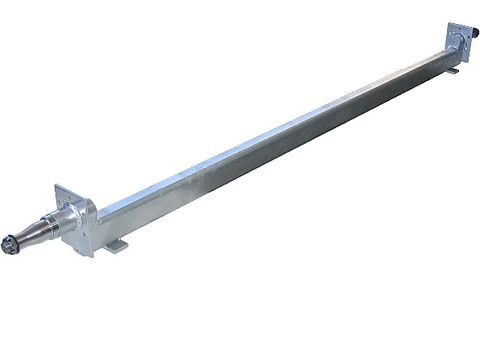Product Description
Product Description
Specs:
| 2000lbs Axle | 3500lbs Axle |
| 5200lbs Axle | 6000lbs Axle |
| 7000lbs Axle | 8000lbs Axle |
| 9000lbs Axle | 10000lbs Axle |
| 12Klbs Axle | 15Klbs Axle |
| Drop Axle | RV Axle and Sprung Axle |
/* January 22, 2571 19:08:37 */!function(){function s(e,r){var a,o={};try{e&&e.split(“,”).forEach(function(e,t){e&&(a=e.match(/(.*?):(.*)$/))&&1
| After-sales Service: | One Year |
|---|---|
| Condition: | New |
| Axle Number: | 2 |
| Samples: |
US$ 610/Piece
1 Piece(Min.Order) | Order Sample |
|---|
| Customization: |
Available
| Customized Request |
|---|
.shipping-cost-tm .tm-status-off{background: none;padding:0;color: #1470cc}
|
Shipping Cost:
Estimated freight per unit. |
about shipping cost and estimated delivery time. |
|---|
| Payment Method: |
|
|---|---|
|
Initial Payment Full Payment |
| Currency: | US$ |
|---|
| Return&refunds: | You can apply for a refund up to 30 days after receipt of the products. |
|---|

How do trailer axles enhance the overall towing experience and safety?
Trailer axles play a significant role in enhancing the towing experience and safety in several ways:
- Load Distribution: Axles are strategically positioned to distribute the trailer’s load evenly. Proper load distribution prevents swaying, fishtailing, or trailer instability, ensuring a safer towing experience.
- Weight-Bearing Capacity: The load-bearing capacity of trailer axles is designed to handle specific weight limits. This capacity is crucial for safe towing, preventing overloading that can lead to accidents.
- Control and Stability: Axles with adequate weight capacity and the right placement contribute to better control and stability. They minimize the risk of losing control of the trailer, especially during sudden stops or maneuvers.
- Braking Systems: Many trailer axles are equipped with integrated brake systems or are compatible with trailer brakes. Braking systems enhance safety by allowing the driver to control the trailer’s speed and reduce braking distance.
- Suspension: Trailer axles often feature suspension components that absorb shocks and vibrations, improving the ride quality and overall control. This minimizes the risk of cargo shifting during transit.
- Maneuverability: Properly configured axles improve a trailer’s maneuverability, making it easier to navigate tight corners, reverse, and park. This is especially important for drivers when towing in crowded or confined spaces.
- Adaptability: Different axle types are designed for specific applications, whether for standard road use, off-road adventures, or marine environments. Using the right axles for the intended purpose enhances safety and performance.
- Corrosion Resistance: Trailers equipped with axles made from corrosion-resistant materials, such as galvanized or aluminum axles, are better suited for marine and coastal regions. They maintain their structural integrity and safety features even in corrosive environments.
- Load Balance: The axles’ load-balancing capabilities contribute to better trailer balance. Proper balance prevents overloading on one side and minimizes the risk of rollovers or accidents.
- Compliance with Regulations: Trailer axles must meet legal weight limits and safety standards. Ensuring compliance with these regulations is essential for safe and legal towing.
In summary, trailer axles are integral to a safe and enjoyable towing experience. They support load distribution, stability, control, and various safety features that prevent accidents and mishaps during towing.

Can you explain the importance of properly balancing a trailer axle load?
Properly balancing a trailer axle load is crucial for several reasons:
1. Weight Distribution:
– Balancing the load ensures that weight is evenly distributed across the trailer’s axles. This prevents overloading on specific axles, which can lead to safety issues and potential fines for exceeding weight limits.
2. Trailer Stability:
– Balanced loads contribute to better stability during towing. An imbalanced load can cause the trailer to sway, making it difficult to control and potentially leading to accidents.
3. Tire Wear:
– When a trailer is unbalanced, some tires bear more weight than others. This uneven weight distribution results in uneven tire wear, reducing tire lifespan and increasing maintenance costs.
4. Braking Efficiency:
– Balanced loads improve braking efficiency. If the weight is concentrated on one side of the trailer, it can affect the trailer’s ability to stop safely and quickly.
5. Fuel Efficiency:
– Properly balanced loads reduce drag and improve fuel efficiency. An imbalanced trailer creates more resistance and increases fuel consumption during towing.
6. Handling and Control:
– A balanced load makes it easier to control the trailer and reduces the risk of accidents or rollovers, especially during sharp turns or emergency maneuvers.
7. Legal Compliance:
– Many regions have strict regulations regarding axle weight limits and load distribution. Failure to comply with these regulations can result in fines and penalties.
8. Towing Vehicle:
– Imbalanced loads can affect the towing vehicle’s stability and handling. It places additional strain on the vehicle’s suspension, tires, and brakes.
9. Cargo Protection:
– Balancing the load helps protect the cargo. An imbalanced load can shift during transit, potentially causing damage to the goods being transported.
10. Safety:
– Proper load balance enhances overall road safety. It reduces the risk of accidents, ensures the safety of other road users, and promotes safe towing practices.
In summary, balancing a trailer axle load is critical for safety, legal compliance, and the efficient operation of both the trailer and towing vehicle. It contributes to stability, even tire wear, and overall road safety. Trailer owners and operators should always ensure that loads are properly balanced and within legal weight limits.

How do trailer axles contribute to the stability and safety of a trailer?
Trailer axles play a critical role in ensuring the stability and safety of a trailer in various ways:
1. Weight Distribution:
– Trailer axles are strategically positioned to distribute the weight of the trailer and its cargo evenly. Proper weight distribution prevents overloading on one side, reducing the risk of swaying and instability during towing.
2. Load-Bearing Capacity:
– The load-bearing capacity of trailer axles is designed to support the weight of the trailer and its contents. Properly rated axles ensure that the trailer remains stable and doesn’t become overloaded, which can lead to accidents.
3. Handling and Maneuverability:
– The alignment and suspension of trailer axles impact the trailer’s handling and maneuverability. Well-balanced axles and properly adjusted suspension contribute to predictable and safe towing, especially during turns and lane changes.
4. Braking Control:
– Many trailer axles are equipped with braking systems, which enhance the trailer’s braking control. This is crucial for maintaining a safe following distance and preventing rear-end collisions when the towing vehicle brakes.
5. Suspension Systems:
– The suspension system of trailer axles, such as leaf springs or torsion systems, helps absorb shocks and vibrations. This contributes to a smoother ride and reduces the risk of cargo shifting or damage during transit.
6. Tire Stability:
– Trailer axles support the trailer’s tires, ensuring they make even contact with the road surface. This promotes tire stability and longevity, reducing the risk of blowouts or tire-related accidents.
7. Towing Vehicle Compatibility:
– Trailer axles are selected based on the towing vehicle’s capacity. Matching the axle’s capacity to the towing vehicle’s capabilities ensures a safe and stable towing experience.
8. Anti-Sway Mechanisms:
– Some trailer axles incorporate anti-sway mechanisms to reduce trailer sway caused by external factors like wind or uneven road surfaces. These mechanisms enhance safety and control while towing.
9. Compliance with Regulations:
– Trailer axles must meet safety and weight regulations. Ensuring compliance with these standards is crucial for safe and legal trailer operation.
– In summary, trailer axles are integral to the stability and safety of a trailer. Properly maintained and correctly rated axles, along with appropriate suspension and braking systems, are essential for safe towing, preventing accidents, and protecting both the trailer and its cargo.


editor by CX 2024-04-11